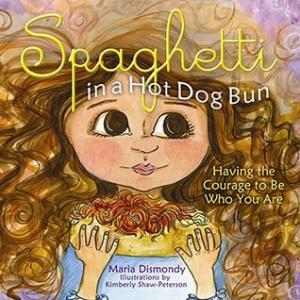Is this a specific kind of cuisine I'm unfamiliar with?

Pretty solid "meh." It stars a little girl named Lucy who eats weird things and has floofy hair (apparently that's the thing that differentiates her from everybody else). There's a boy named Ralph in her class who makes fun of her for both of those and it hurts her feelings. She lives with her grandfather, who asks her if everything is okay, and she says everything is fine instead of asking for his help or advice. Ralph keeps making fun of her and then he gets stuck on top of the monkey bars at school and she realizes since she has a captive audience, now is a good time to go tell him how upset she is at him. She then realizes that he's actually scared and that's why he's stuck on top of the monkey bars, so she helps him down. From then on, he's her friend. Only then does she tell her grandfather about it.
I get that it's trying to say, "Be kind to other people even if they're not nice to you and that can pay off," but that's not how you deal with bullies. That's not always going to be a useful resolution with bullies. Being nice to them doesn't always work. Sometimes you need to tell the teacher. Or your grandfather.
Every message that this book contains is spelled out very explicitly, telling instead of showing. She says to her grandfather that other people don't eat a certain food the way her family does, and he replies, "It's okay, not everyone likes the same thing, Lucy. It doesn't mean one person is right or wrong. We're all different. What a boring world it would be if we were all exactly alike! Do you remember what's really important?" And she replies, "Yes, Papa. Even if we are different from others on the outside, we all have a heart with feelings on the inside." Gah. Spouting cliches and lecturing your children doesn't fix problems. And later, she thinks, "Maybe Ralph is mean to me because he thinks being different is bad." And when she tells her grandfather about her solution to the problem, he says, "That took a lot of courage. It wasn't the easiest thing to do. You chose to treat others the way you want to be treated."
The story is okay, it's just the writing that's poor. It's a picture book, intended for adults to read to children. A parent is going to be there. You don't need to have your characters do something, and then explain why they did the right thing. You're not adding anything new just by repeating what just happened with a cliche description. That's not the same thing as explaining things in a different way.